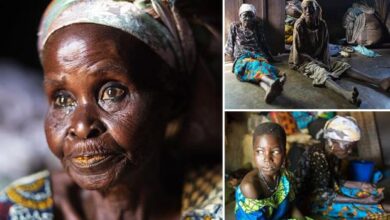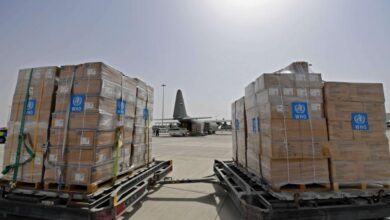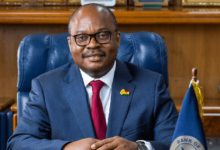Propose policies to protect oceans…Akufo-Addo charges marine experts

Propose policies to protect oceans…Akufo-Addo charges marine experts
President Nana Addo Dankwa Akufo-Addo has charged blue economy, marine life and ocean experts to as a matter of urgency, propose policies that will help Ghana and the rest of the African continent to protect its oceans and marine life.
The ocean, according to him, “is the life blood of our planet covering some 70 per cent of the earth’s surface.”
The President observed that “the ocean generates half of (the world’s) oxygen supply, drives (its) global economy through transport and trade, and provides food and livelihoods as well as cultural and recreational value for billions of people around the world” and underscored the need to preserve and protect the ocean and all its resources.
Speaking on the theme; “Our Ocean’s Health, Our Prosperity, Our Planet’s Security’ at the National Blue Economy Summit in Accra on Thursday, President Akufo-Addo said “the ocean, however, is changing” because “it is under increasing pressure from unsustainable fishing practices, pollution, marine debris, habitat loss, ocean acidification and of course, climate change.”
“The consequences of neglecting the ocean are dire not just for the millions of people who depend on it for their livelihoods, but also for the health of our planet.
“We need to take decisive actions now to safeguard the oceans capacity to regenerate and continue to deliver substantial economic, environmental and social value for our development,” President Akufo-Addo told participants at the summit.
Touching on the importance of the ocean to Ghana, President Akufo-Addo noted that the country’s “coastline is some five hundred and fifty kilometres (550 km), extending to some 200 nautical miles seawood, making up a total exclusive economic zone area of some 218,000 square kilometres. Our costal area is home to some 7.5 million people.”
“Like many other coastal African countries, the blue economy provides us with food, employment and income. For instance, some 10 per cent of Ghana’s workforce is employed in the fishing sector which also accounts for 4.5 per cent of the country’s GDP.
“Additionally, 70 per cent of Ghana’s trade is carried by sea through the ports of Tema and Takoradi. We are well positioned to benefit from the ocean resources if sustainably managed,” Akufo-Addo said.
“Sadly, Ghana’s coastal and marine resources face significant threats in the form of pollution, biodiversity loss, ocean dumping, over fishing, and other marine threats including overexploitation, illegal, unreported and unregulated fishing, piracy and trafficking,” he added.
The threats identified by the President, he said “are avoidable” and the nation’s inability to deal with them threatens “the livelihoods of many people, they affect food security prospects, critical infrastructure, important ecosystems and indeed, the security and stability of the entire region.”
To this end, President Akufo-Addo proposed a five-point agenda for urgent action at the country and continental levels to contribute to protecting the ocean, the planet and the wellbeing of all.
“Firstly, we have to prioritise sustainable management of our oceans. This means establishing and enforcing a robust regulation to prevent over fishing and promote responsible fishing practices.
“We must work closely with our international partners as well to establish marine protected areas, safeguarding critical habitats and promoting biodiversity conservation.
“Secondly, we have to deepen our strategic partnerships and build a progressive coalition for enhanced ocean health and the accelerated development of our communities and country at large. The central role of the private sector, academia, civil society organisations and community leaders including community leaders is key in this regard.”
Source: www.spotonnews.net








